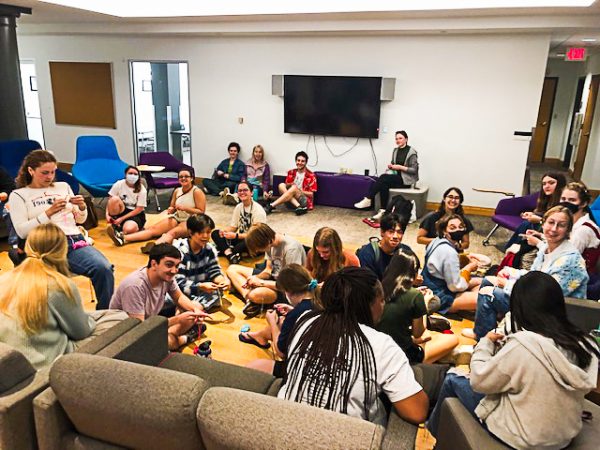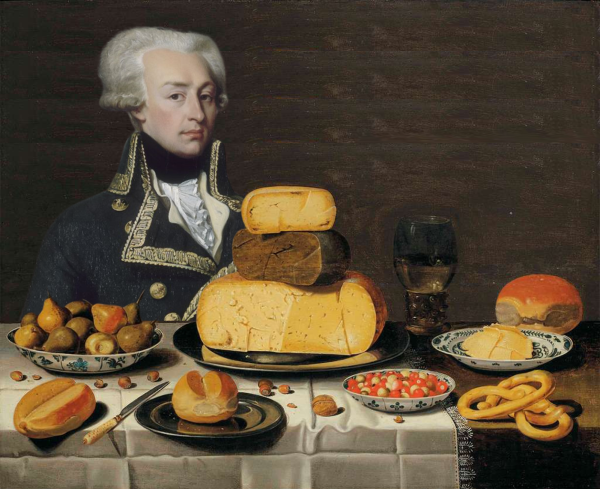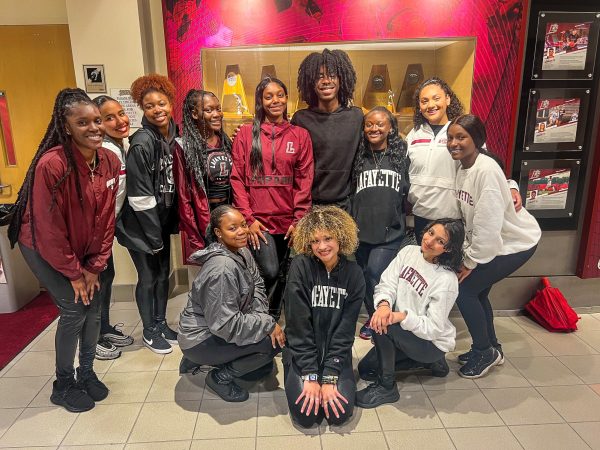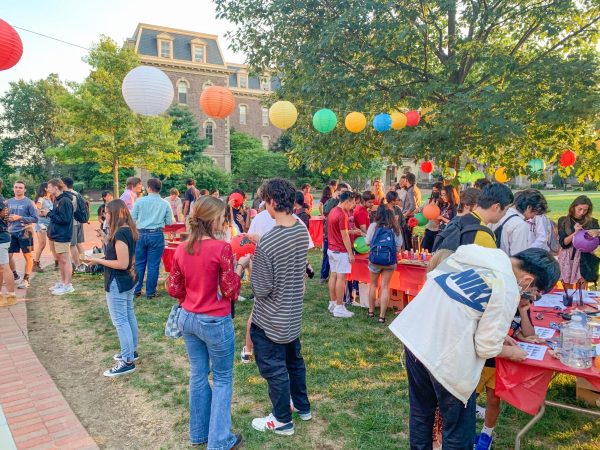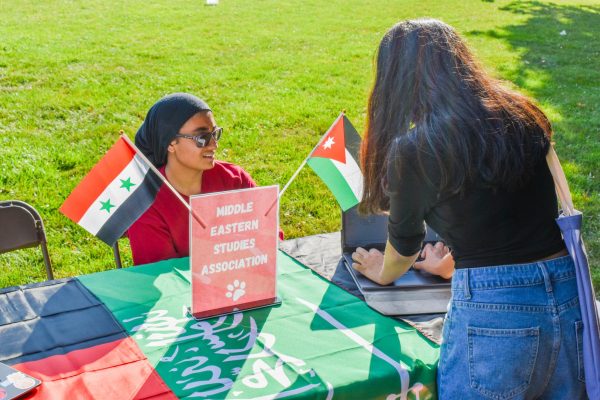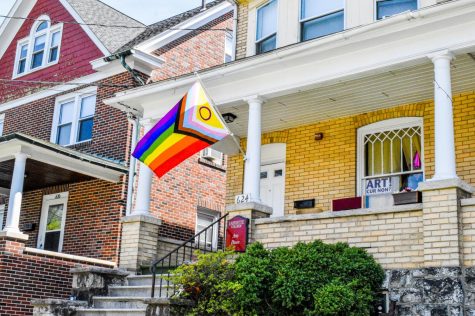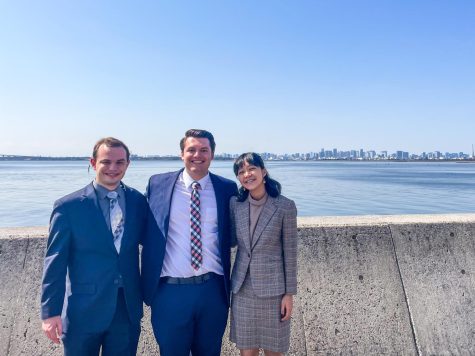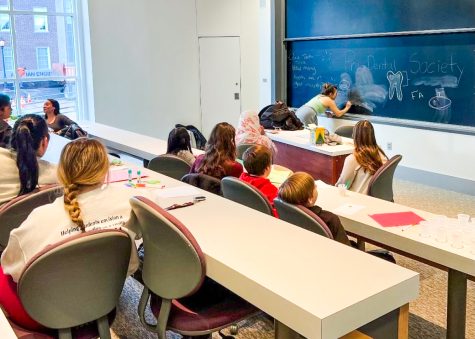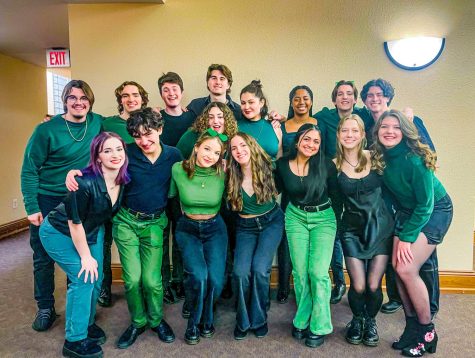The ins and outs, lefts and rights of political clubs on campus
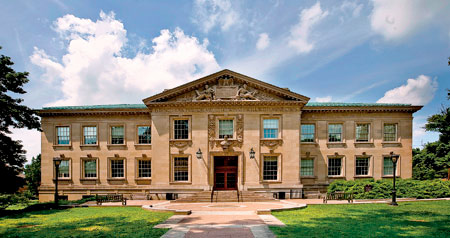
Each club holds meetings in Kirby Hall of Civil Rights. (Photo courtesy of Kirby Government and Law Society)
March 11, 2022
Diving into politics can be a daunting task, but navigating Lafayette’s political scene does not have to be. Whether you want to connect with like-minded people, engage in debates with the opposition or learn to discourse with others, there is a club on campus for you.
College Democrats
The College Democrats club provides a space for Democrats on campus to learn about and discuss current political issues.
“It’s very discussion-based. Sometimes we’ll have a presentation if we want to educate our members on something, but a lot of times, we’ll discuss,” President Fiona Simpson ‘22 said. “Sometimes it can take us down a different path than what we intended, but it usually works out because we like discussing anything related to politics.”
Although members of the club fall into the same party, differences in opinion emerge in discussions.
“There’s definitely still some differences. [It’s] definitely not just an echo chamber of everybody agreeing. There’ll be a lot of back and forth, especially with more nuanced topics, especially for people who have grown up in different areas,” she said.
The club has encouraged members of the Lafayette College community to get involved politically by holding voter registration drives, hosting phone banking events and promoting upcoming elections.
“Especially right now, I think it’s really important to at least have some basic knowledge of politics and what’s going on with current events,” Simpson said. “If people want to get involved in political clubs, I would definitely encourage that.”
College Democrats meet every two weeks on Tuesdays at 7 p.m. in Kirby Hall of Civil Rights 107. To get involved, students should out to Simpson or any other member of the group and ask to be added to the GroupMe.
Open Debate Club
For those looking to discuss political and global issues without the restraints of choosing a political party, the Open Debate club’s doors are open.
“Contrary to our name, we by no means are a formal debate group or anything like that…essentially, we say, ‘Here’s a topic. Here’s something to start the conversation,’ and it’s a very free-flowing conversation from there,” Co-Chair Deja Jackson ‘23 said.
Topics for discussion are chosen democratically in the club’s GroupMe. Members are given the topic and educational resources in advance for upcoming meetings.
“Our topics can go beyond whatever’s happening in the political news,” Jackson said. “It allows for a broader range of topics that we can discuss. That’s something I really like about the non-partisan nature of the club.”
Recent topics have included the ongoing war in Ukraine, the Texas abortion ban and the question of whether the United States should require all citizens to vote.
“Given how polarized our current situation is—something that I myself am really not a fan of—you assume that someone’s views are just based on their party affiliation. I think is that there’s much more to someone’s views than just that,” Jackson said. “I think that having a club that can be a non-partisan organization is really about trying to develop that nuance and have discussions that go beyond just what our party labels are.”
The Open Debate club meets weekly on Thursdays at 7 p.m. in Kirby Hall 206 and virtually during breaks. To get involved, students can get in touch with any member of the club and join the GroupMe.
Bipartisan Coalition
Founder and President of the Bipartisan Coalition Kait Ahern ‘23 wanted to make a space where students of different beliefs can come together and make a difference.
“Instead of getting gridlock and not moving anything forward, through bipartisanship, you can find a compromise, find middle ground and take that next step in advancing what you believe in,” Ahern said. “It might not be as far of a step or as large of a step as you had originally hoped. But it’s still better than not moving forward at all. It’s still progress.”
Members of the Bipartisan Coalition will break off into smaller groups, work together to find legislation that they all care about and lobby it to Congress, regardless of party affiliation.
“I think that getting right into what you have in common, and trying to focus on that lobbying or the legislation side of things might benefit people a little more than if we just debated things out and focused on how different we are from one another politically,” Ahern said.
In the future, the club hopes to host voter registration drives, bring speakers to campus, meet with local and state politicians and potentially visit Washington, D.C. to discuss cooperation and compromise with representatives.
The Bipartisan Coalition held its first official meeting this week. They will meet every two weeks on Thursdays at 7 p.m. in Kirby Hall. To get involved, students should go to the club’s Instagram page, @bipartisan.coalition and join the GroupMe through the link in their bio.
Lafayette College also has a College Republicans organization on campus. Caroline Ross ’22, the president of the group, did not respond to multiple requests for comment.



































































































